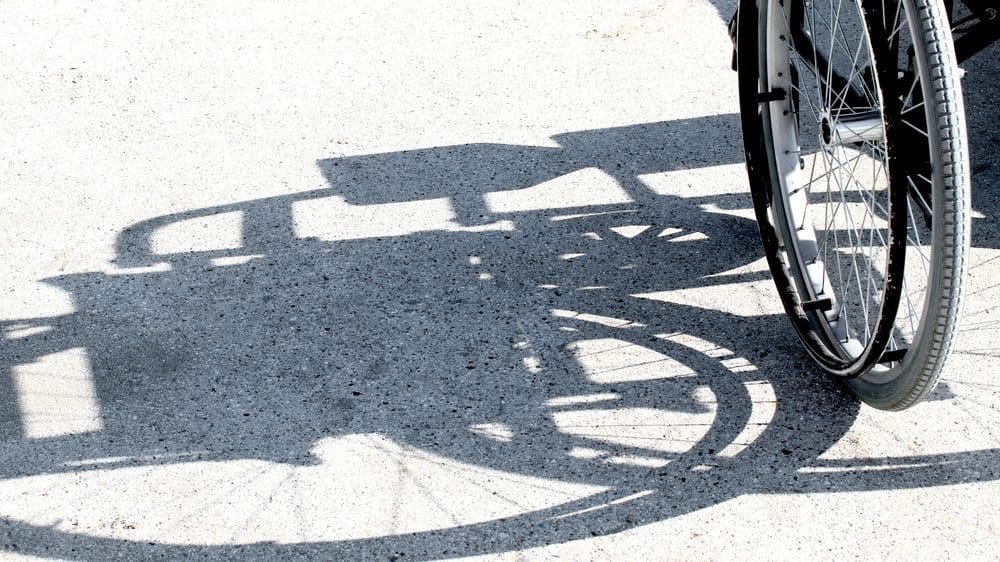Why Archer’s Challenge Misrepresents the Experience of Wheelchair Users
“As you saw, it’s a lot of coordination involved between moving the chair, pointing to maps and of course using the weather clicker,” Chikage Windler, chief meteorologist at CBS Austin, explains about her experience of using a wheelchair on the job. She participated in Archer’s Challenge, an initiative aimed at educating able-bodied people about barriers to accessibility for wheelchair-users by nominating participants to use a wheelchair for a day. Archer Hadley, a 20-year-old student with cerebral palsy, started the initiative in an effort to rally support and funds for installing automatic doors on his campus. If Windler’s main takeaway from the experience was the difficulty of maneuvering a chair while gesturing, then there must be a big gap between the intentions and outcomes of Archer’s Challenge. Both Archer’s Challenge and media reports of the initiative reinforce ableist, misinformed beliefs about disability.
Some disability advocates have positively received the challenge. The Mighty published an article about Archer’s Challenge that went viral and received high praise from many commenters. Positive replies in public and closed groups on social media focused on how the challenge fosters empathy and dialogue with able-bodied people. While I appreciate the intention of the challenge to encourage able-bodied people to better recognize barriers to access, as a wheelchair-user, I am outraged that a major disability platform did not even consider that the initiative could cause harm to the disability community.
Using a wheelchair for one day teaches nothing about the experience of being disabled. It is not the logistics of using a clicker while moving my wheelchair that forms my identity and experience, but rather systemic discrimination. I can imagine that using a wheelchair for one day without any prior experience of physical disability or connection to the disability community would be physically, mentally, and emotionally exhausting, but it wouldn’t teach people about what it’s truly like to use a wheelchair every day.
Until you know what it’s like to be fired from a job for speaking out against being excluded from activities based on your disability, to not have a place to live because of the lack of affordable and accessible housing, to be asked to not fully participate in your education to avoid “disrupting” your classmates, and to fight for your right to exist, you do not know what it is like to be disabled.
Participants in Archer’s Challenge maintain their able-bodied privilege while choosing to temporarily act out what they perceive to be physical disabilities, whereas my understanding of disability is ever-evolving through years of navigating a world that calls my body “Other.”
In any other context, a group of people in a position of power dressing, acting, or speaking like a marginalized group to pretend to “understand” them would be considered appropriation and discrimination.
Simulations of wheelchair use only teach the negative aspects of disability. I can imagine that using a wheelchair for a day without any prior experience of physical disability or connection to the disability community would be physically, mentally, and emotionally exhausting. Participants do not learn about the history of disability activists, the strength of the disability community, the power of advocacy, and the wisdom of disability conscious.
Even so, to Archer, I want to say thank you for advocating for students with physical disabilities to have equitable access to education and raising awareness of the continued inaccessibility of public and private spaces. I am proud to be part of a community with young people like you who aim to make our communities better places for disabled people to live, work, study, and play. And I am sorry that you had to raise money for your right to education and have to continue fighting for your peers to have a basic understanding of what it means to be a wheelchair-user. But while I appreciate the intentions of Archer’s Challenge, I hope that you will consider using strategies that focus on a more holistic and systemic understanding of disability going forward, such as teaching about the writings of disabled people and helping able-bodied people recognize their privileges.
Disability education must start with humility.
Before able-bodied people can begin to understand what it is like to be a wheelchair-user, they must first accept that they will never fully know the experience unless they become wheelchair-users themselves in the future. Disabled people are the experts on the complexities and nuances of our own experiences. We must center eduction on our knowledge rather than asking able-bodied people to imagine our lives. Instead of reinforcing problematic stereotypes, let’s work together to promote disability education that creates systemic change.
About Rooted In Rights
Rooted in Rights exists to amplify the perspectives of the disability community. Blog posts and storyteller videos that we publish and content we re-share on social media do not necessarily reflect the opinions or values of Rooted in Rights nor indicate an endorsement of a program or service by Rooted in Rights. We respect and aim to reflect the diversity of opinions and experiences of the disability community. Rooted in Rights seeks to highlight discussions, not direct them. Learn more about Rooted In Rights



